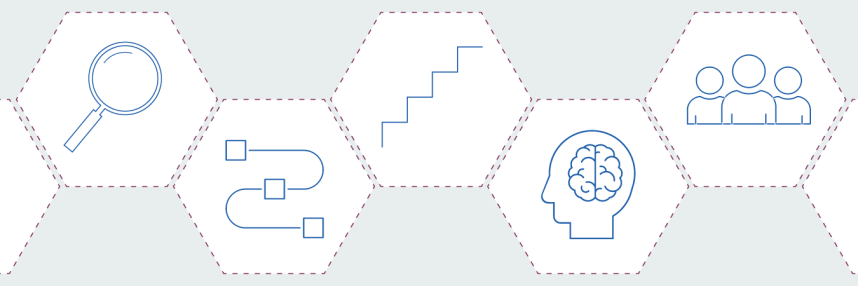Introducing the Clinical Pathway Initiative
The National Genomics Education programme has launched a new framework for identifying the genomics education needs of the NHS workforce
As the use of genomics becomes more widespread across all areas of healthcare, it is important to develop a common approach to the training and education of NHS health professionals. To meet this need, the National Genomics Education programme has developed the Clinical Pathway Initiative (CPI), which aims to provide a nationally co-ordinated and consistent approach to the integration of genomic medicine across NHS workforce education and training.
Conceived in 2021, the initiative was first rolled out as a pilot programme to support five NHS national transformation projects covering key clinical pathways: Now, the scope of the initiative is being widened to allow for the development of a clinical pathway in any specialty in which genomics is, or will be, embedded into routine care.
Developing the clinical pathway structure
The aim of each clinical pathway is to identify the key genomics competencies required of health professionals involved in each step of the patient’s genomic testing journey. To achieve this, a clinical pathway will be broken down into its shorter component pathways – for example, a larger pathway to investigate an intellectual disability might be divided into two smaller pathways for a) requesting genomic testing, and b) interpreting and feeding back results to the patient.
Each of these smaller pathways will then be broken down further into their component steps and the key competencies required by health professionals to deliver on each of these steps will be identified, along with the educational resources required to support each competency.
Pathway example: Familial hypercholesterolaemia
The initiative’s very first completed clinical pathway was for familial hypercholesterolaemia (FH). FH is an inherited condition that causes high cholesterol and increases the affected individual’s risk of premature cardiovascular disease. The developed clinical pathway helps health professionals to plan genomic medicine service delivery, identify and address their colleagues’ training needs and assess and develop their own knowledge and skills.
A list of the other CPI projects that are currently underway can be found on our dedicated webpage. You will also find an information pack containing a range of resources to help you develop a clinical pathway for your own specialty, including a spreadsheet template and an author role description.









